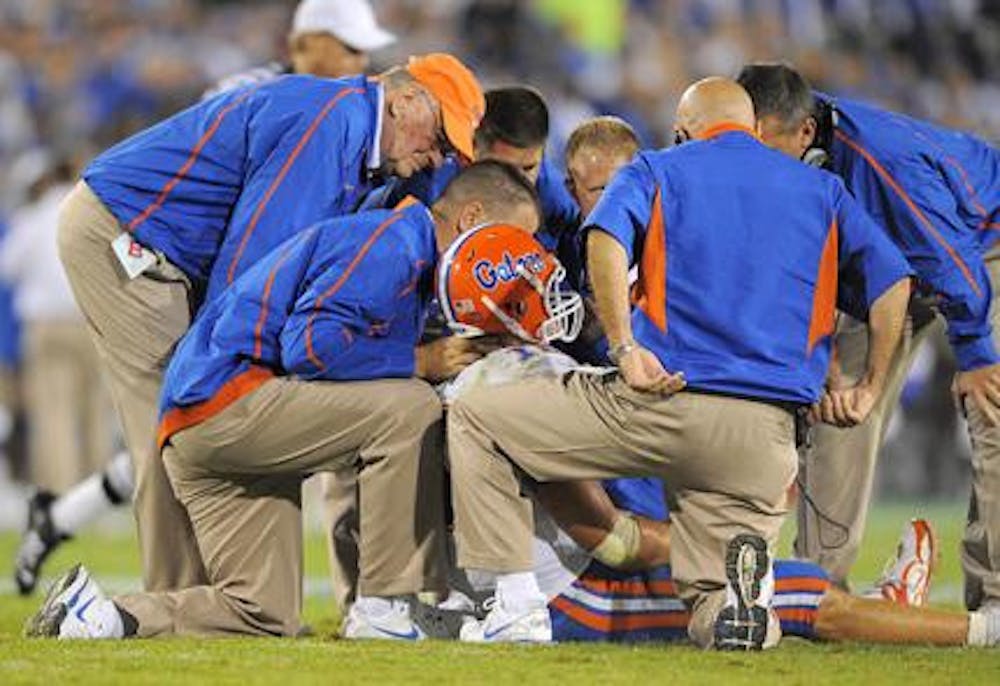Plenty of uncertainty surrounded Florida quarterback Tim Tebow's status after he was sacked and injured Saturday against Kentucky, but Dr. Jonathan Lifshitz didn't have to wait for commentators to tell him Tebow had suffered a concussion.
Dr. Lifshitz, an assistant professor at UK's Spinal Cord and Brain Injury Research Center, recently published a study describing "The Fencing Response," an involuntary arm movement brought on by impact to the brain that causes a concussion.
After Tebow's head collided with offensive lineman Marcus Gilbert's knee, he fell to the ground with both arms raised in an L-shape resembling the en garde position in fencing.
Lifshitz saw the response on television from his Lexington home, and he couldn't believe his eyes.
"I saw it, and it took my breath away," Lifshitz said. "How could it be the No. 1 quarterback at our home field that's showing this so clearly? Immediately, most of my lab members were calling me asking if I saw it. I agreed that it was, but I think I was doubting it because of the craziness of the circumstances."
Lifshitz hopes that his research will help athletes get the attention they need after head impacts by providing an easy indicator of a concussion.
After noticing the trend, Lifshitz and his research partners examined clips on YouTube.com to see how prevalent fencing was. They watched football hits and knockouts in boxing and mixed martial arts that they knew resulted in concussions, and of the 35 they viewed, two-thirds of the concussion victims showed the response.
Further tests on animals showed bleeding and damage to the brain stem, and fencing can also be a precursor to seizures. Players can sustain concussions without fencing, Lifshitz said, but anyone with that reaction following an impact to the head needs medical care and should be treated for a concussion.
"This is a teachable moment for other recreational and high school sports," he said. "If someone goes down and shows the fencing response, that person needs immediate medical attention and should not be returned to the game. The way in which the training staff and coaches responded to Tebow was the way it should be.
"You can imagine someone from a more rural part of Florida playing high school football may not have that attention, but those players need the exact same level of care."
As for Tebow's recovery, UF coach Urban Meyer said his quarterback can remember the play and has performed well during tests since his injury, and Tebow's experience with soreness and headaches was to be expected. The key will be monitoring Tebow for any lasting symptoms of his concussion for the next week or so to minimize any chance of him returning too early.
"I have no concerns about that because health-wise, we won't play him until he's ready," Meyer said.
No one wants to suffer an injury like Tebow's, but it couldn't have come at a better time.
The Gators' bye week will allow plenty of time to observe him in a pressure-free environment before he'd need to return to practice before the Oct. 10 trip to LSU.
"The issue with concussions is that nobody knows," Lifshitz said. "Everyone is unique and responds to them differently. Tebow is a young, healthy athlete, so he'll respond much better than an overweight, middle-aged person.
"The fact that he's an athlete is good, but a concussion is still a concussion."






